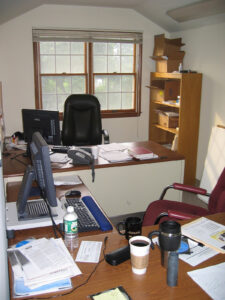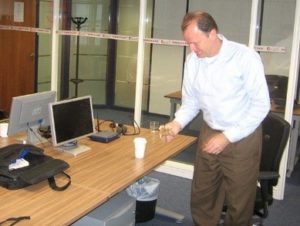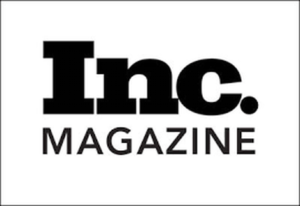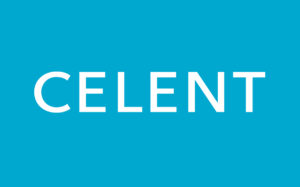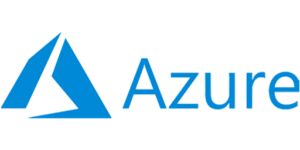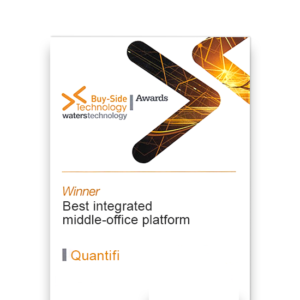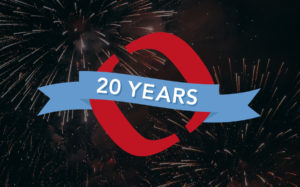COMPANY
Celebrating
20 Years
Quantifi was founded with the goal of providing the most advanced and flexible risk, trading and analytics solutions.
20 years
Where We Started
Quantifi began its journey in 2002. Rohan Douglas founded Quantifi in a small attic in New Jersey after previously heading Citi’s global credit derivative and emerging market trading research groups. Quantifi was started with the goal of delivering the same sophisticated risk management and analytics used by the largest banks to all market participants. Quantifi has come a long way since then, having expanded its footprint in EMEA, NA and Asia Pacific and established a brand that is now synonymous with a commitment to innovation and a strong passion for what we do.
FEATURED VIDEO
An Interview with CEO Rohan Douglas
Rohan Douglas, CEO, explains how he founded Quantifi, the journey to where the company is now and his plans for the the next 20 years.
OUR TEAM
Over the Years
TIMELINE
Our Journey
Q&A
Employee Spotlight

Jamie Elliott
Development Manager,
Risk Architecture
Joined 2008
What motivates you to get out of bed for work?
The opportunity to learn – whether it’s looking at new technology or understanding our clients’ businesses better. I’m motivated to keep learning every day. I’m also passionate about problem-solving. Fortunately, we’re in the business of creating solutions.
How would you describe your day job to a child?
I tell my own kids that I create ‘Apps.’ That’s about the best I can hope for a 4 and 7 year old to understand. I used to give new starters a training session informally called “Credit Derivatives pricing for a smart 10 year old.” I still think most pricing models can be explained in simple terms like a coin toss game. Why these things comprise an entire industry is harder to explain.
READ MORE
What does a typical day look like for you and what are you currently working on?
I’m based in Sydney, so my morning usually starts early with a series of phone calls to my colleagues in the US. I then have a daily stand-up call with my team here in Sydney. If anyone raises a question or requests help during the stand-up call, I’ll follow up with one-on-one calls over the course of the day. Sometimes, my day will finish with additional calls to the UK Office.
Part of my focus each day will be on urgent issues, keeping the next delivery on track or kicking off a new project. There will also be planning for the next sprint – who, what, when, etc. Once I get on top of these items, I’ll have time to do some deeper thinking and discussion around the design of a new feature or system and strategise how to move towards our architectural goals. If I’m really on top of things, then I may write some code and maybe prototype a design.
What do you like most about your job?
I like that the quality of our architecture and modernity of our tech stack are recognised as a strategic advantage for us. This means that we are always working to improve our systems and stay ahead of our competition. I like the collaborative environment. If you have a good idea and can advocate convincingly, you get a lot of opportunity to influence what we build.
What advice would you give to recent new entrants?
First of all, no-one expects you to know everything on day one. You should use this period as an opportunity to learn. If you don’t understand something, ask. There are no stupid questions. The best way to learn what will make our solutions better is by speaking to our clients. However, don’t just let them tell you how to solve a problem. Work to understand the need motivating the request and try to think how it can be made more general and re-usable.
What’s something most people don’t know about you?
In addition to software architecture, I’m really interested in the architecture and design of the built environment. I’m interested in how we can move towards a more sustainable and humane economic system. However, I don’t think new technologies can solve our fundamental problems. In fact, in many cases, we just need to revisit solutions that have already proved themselves over thousands of years. Check out #GoodUrbanism to get a sense of it. There are also big overlaps between software architecture and good building design. I’m a big fan of the architect Christopher Alexander whose work on pattern languages has had a seminal influence in the software patterns community. Another fantastic architecture book for software engineers is Stewart Brand’s “How Buildings Learn”.

Les Stott
Cloud Engineer
Joined 2021
What motivates you to get out of bed for work?
Usually my cat when he wants breakfast or to go outside! But for work, the ability to effect real change for business processes and environments. Being able to directly improve systems and processes benefits the internal teams and clients and is a great motivator for getting out of bed.
How would you describe your day job to a child?
I’m the Mayor of Legotown. We have many clients and internal teams who have houses and shops all over Legotown. Sometimes there are issues with the houses and shops – like a broken door or roof. It’s my job to rebuild and repair the town. Other times, we have new residents in Legotown, so it’s my job to build new houses or shops for them. Sometimes there are requests for upgrades like a 2nd story on a house and I perform those upgrades.
READ MORE
What does a typical day look like for you and what are you currently working on?
A typical day usually consists of applying a hotfix or installation/upgrade to one or multiple environments, transferring database backups from hosted environments to Quantifi in order to investigate/troubleshoot issues, supporting the PS Team with access and troubleshooting any client issues, updating documentation on confluence and working on larger project-based work.
What do you like most about your job?
I like a challenge. There is great scope for improvement in what we do in our hosted environments and we have a core team in IT who are all on the same page. We are all relatively new to Quantifi so there’s a sense of a “greenfield environment” where we can build and support the systems more efficiently than before. It’s a pleasure to work with so many talented people across all teams who are more than willing to provide help and assistance if required.
What advice would you give to recent new entrants?
Quantifi is a great place to work with a smart and talented team. If you have questions or are unsure of anything, don’t hesitate to reach out for assistance or support. Everyone is always willing to help you out. You will learn a lot working with everyone at Quantifi.
What’s something most people don’t know about you?
I have a forklift license. My first job after school was in a cabinetmaking factory where I operated the large Giben CNC machine to cut up all of the laminate boards for making bathroom vanities. I needed to load and stack packs of laminate in/out of the machine. It was definitely fun to drive the forklift. More fun came from using the pallet jacks as scooters up and down the factory while the boss wasn’t around. Couldn’t get away with that these days!
![]() Quantifi has long been a believer in corporate citizenship. The company and its employees have a history of giving back to local communities and we have made a commitment to donate 3% of all profits to charitable causes. I think this is a great way for Quantifi to share its success.
Quantifi has long been a believer in corporate citizenship. The company and its employees have a history of giving back to local communities and we have made a commitment to donate 3% of all profits to charitable causes. I think this is a great way for Quantifi to share its success. ![]()
Rohan Douglas, CEO, Quantifi
GIVING BACK
Donating 3% of all Profits to Charitable Causes






